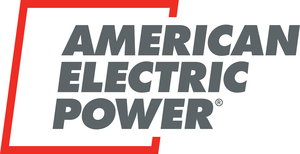COLUMBUS, Ohio, March 2, 2021 /PRNewswire/ -- Six major utilities today announced a plan to ensure that electric vehicle (EV) drivers have access to a seamless network of charging stations connecting major highway systems from the Atlantic Coast, through the Midwest and South, and into the Gulf and Central Plains regions.
The Electric Highway Coalition – made up of American Electric Power, Dominion Energy, Duke Energy, Entergy Corporation, Southern Co., and the Tennessee Valley Authority – announced a plan to enable EV drivers seamless travel across major regions of the country through a network of DC fast chargers for EVs. The companies are each taking steps to provide EV charging solutions within their service territories. This represents an unprecedented effort to offer convenient EV charging options across different company territories and allow EV travel without interruption.
The Edison Electric Institute estimates 18 million EVs will be on U.S. roads by 2030. While many drivers recognize the benefits of driving an EV, such as the ease of low-cost home charging, some are concerned with the availability of charging stations during long road trips. With efforts like the Electric Highway Coalition, electric companies are demonstrating to customers that EVs are a smart choice for driving around town, as well as traveling long distances.
This effort will provide drivers with effective, efficient, and convenient charging options that enable long-distance EV travel. Sites along major highway routes with easy highway access and amenities for travelers are being considered as coalition members work to determine final charging station locations. Charging stations will provide DC fast chargers that are capable of getting drivers back on the road in approximately 20-30 minutes.
"Throughout the ages, travelers have had to figure out how to get from point A to B. From feeding and watering horses, to filling gas tanks, and now recharging batteries, ensuring that there are convenient places to accomplish these tasks is critical," said Nicholas K. Akins, AEP's chairman, president and chief executive officer. "With this effort, we are working to help drivers see that EVs fit their lifestyle and their travel plans, wherever the road might take them."
AEP has committed to replacing its 2,300 cars and light-duty trucks with EV models by 2030. Additional medium- and heavy-duty vehicles will transition to hybrid or electric alternatives as models become available. The charging network announced today also will enable AEP employees to use EVs to travel throughout the company's 11-state service territory. AEP also is working with select customers across its service territory to help them understand the benefits of electrifying their own vehicle fleets or business processes.
Across its service territory, AEP is working with regulators to create programs that benefit all customers and support EV adoption, such as off-peak charging programs, incentives for charging station installations, energy efficiency rebates, and consultative services to encourage electrification.
In 2018, AEP Ohio launched a $10 million program to deploy 375 charging stations in partnership with local governments, workplaces and multi-family dwellings to increase publicly available charging sites and demonstrate the benefit of public-private partnerships as part of the Smart Columbus initiative. The program included a requirement to locate 10% of the charging stations in low-income areas, a benchmark that was exceeded.
In 2020, Indiana Michigan Power began offering its IM Plugged In program to address residential, multi-family dwelling, fleet and workplace charging, as well as corridor fast charging. The program offers customers rebate programs that reduce EV charging infrastructure costs and EV-specific off-peak rates.
Appalachian Power offers a residential off-peak charging program for Virginia customers. Customers also receive credits for EV charging that takes place during off-peak periods, such as overnight.
Additionally, residential customers of Public Service Company of Oklahoma and Southwestern Electric Power Company in Louisiana and Texas are eligible for energy efficiency rebates on qualified EV chargers.
The Electric Highway Coalition welcomes interested utilities to join as it seeks to extend the reach of network. Additionally, it supports, and looks forward to working with, other regional utility transportation corridor electrification initiatives.
American Electric Power, based in Columbus, Ohio, is focused on building a smarter energy infrastructure and delivering new technologies and custom energy solutions to our customers. AEP's approximately 16,800 employees operate and maintain the nation's largest electricity transmission system and more than 223,000 miles of distribution lines to efficiently deliver safe, reliable power to nearly 5.5 million regulated customers in 11 states. AEP also is one of the nation's largest electricity producers with approximately 30,000 megawatts of diverse generating capacity, including more than 5,300 megawatts of renewable energy. AEP's family of companies includes utilities AEP Ohio, AEP Texas, Appalachian Power (in Virginia and West Virginia), AEP Appalachian Power (in Tennessee), Indiana Michigan Power, Kentucky Power, Public Service Company of Oklahoma, and Southwestern Electric Power Company (in Arkansas, Louisiana, east Texas and the Texas Panhandle). AEP also owns AEP Energy, AEP Energy Partners, AEP OnSite Partners, and AEP Renewables, which provide innovative competitive energy solutions nationwide. For more information, visit aep.com.
SOURCE American Electric Power

WANT YOUR COMPANY'S NEWS FEATURED ON PRNEWSWIRE.COM?
Newsrooms &
Influencers
Digital Media
Outlets
Journalists
Opted In





Share this article